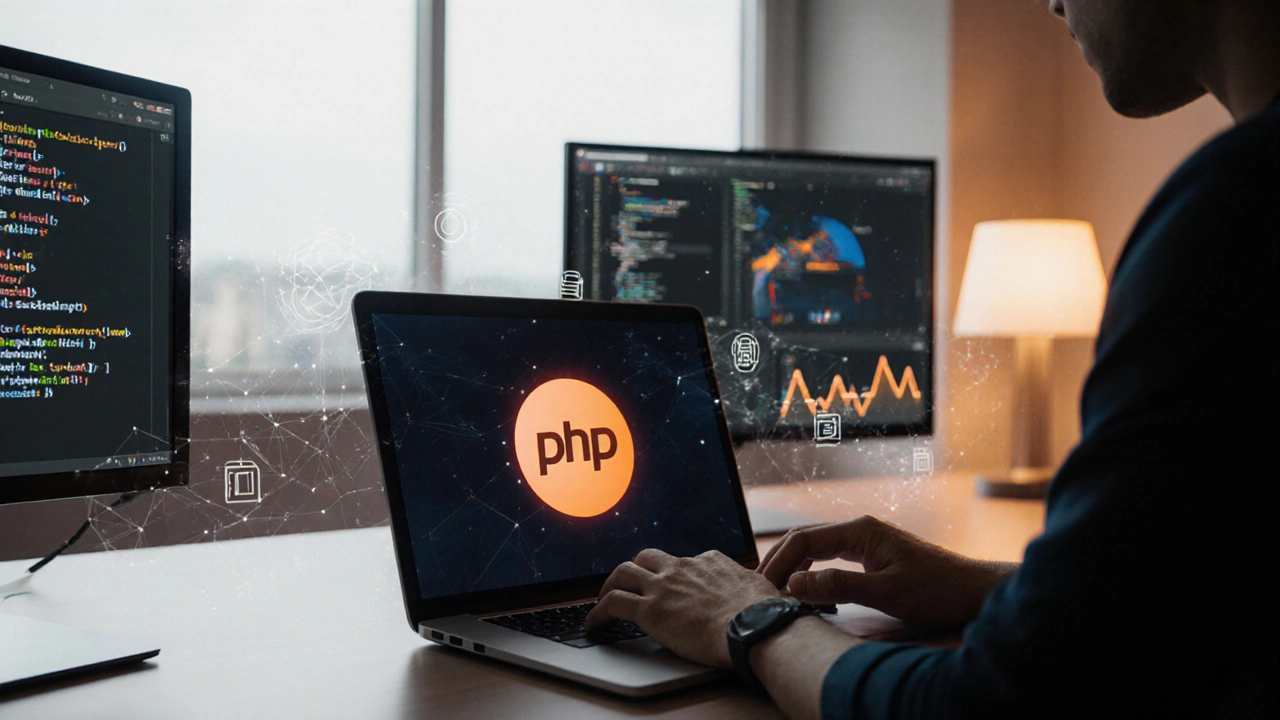PHP Performance: How to Make Your Code Run Faster
When working with PHP, a popular server‑side scripting language used for web development. Also known as Hypertext Preprocessor, it powers millions of sites and applications, but without proper tuning it can feel sluggish.
One of the core ways to improve PHP performance is through caching, storing frequently accessed data in memory to avoid repeated computation. When you cache results of database queries or rendered templates, you cut down on I/O and let the server serve pages in milliseconds instead of seconds. Techniques range from simple file‑based caches to advanced in‑memory stores like Redis or Memcached.
But caching alone isn’t enough. Profiling, measuring where a script spends its time reveals bottlenecks hidden in loops, API calls, or third‑party libraries. Tools such as Xdebug or Blackfire let you see hot spots, so you can refactor or replace inefficient code. Profiling therefore directly informs where to apply caching or other optimizations.
Key Areas to Boost PHP Performance
Another powerful lever is the opcode cache, a mechanism that stores compiled bytecode in shared memory. OPCache, built into modern PHP versions, eliminates the cost of parsing and compiling scripts on every request. Enabling it can shave off 30‑50% of execution time, especially for large codebases.
Server configuration also plays a big role. Adjusting PHP-FPM settings, process manager parameters that control concurrency and resource usage ensures the interpreter uses CPU and memory efficiently. Tuning the "pm.max_children" and "pm.max_requests" values prevents overloads during traffic spikes.
Database interaction is another common slowdown source. Using prepared statements, proper indexing, and query caching reduces round‑trip latency. When you pair these practices with an ORM that lazily loads data, you keep memory footprints low while still delivering fast responses.
Frameworks such as Laravel or Symfony come with their own performance hooks. Enabling route caching, view compilation, and service container optimization can dramatically cut bootstrap time. Knowing which framework‑specific features exist helps you apply the right optimization at the right layer.
Finally, modern development workflows benefit from Composer’s autoload optimization. Running composer dump‑autoload -o generates a class map, cutting the time PHP spends locating files. This tiny step often yields noticeable gains in large projects.
All these techniques—caching, profiling, opcode caching, server tweaks, database tuning, framework hooks, and Composer optimization—form a cohesive strategy. By understanding how each piece fits, you can systematically improve speed without guessing.
Below you’ll find a curated collection of articles that dive into each of these topics, offer step‑by‑step guides, and share real‑world examples. Whether you’re troubleshooting a slow API endpoint or gearing up for a high‑traffic launch, the resources here will give you actionable insight to make your PHP applications lightning‑quick.

